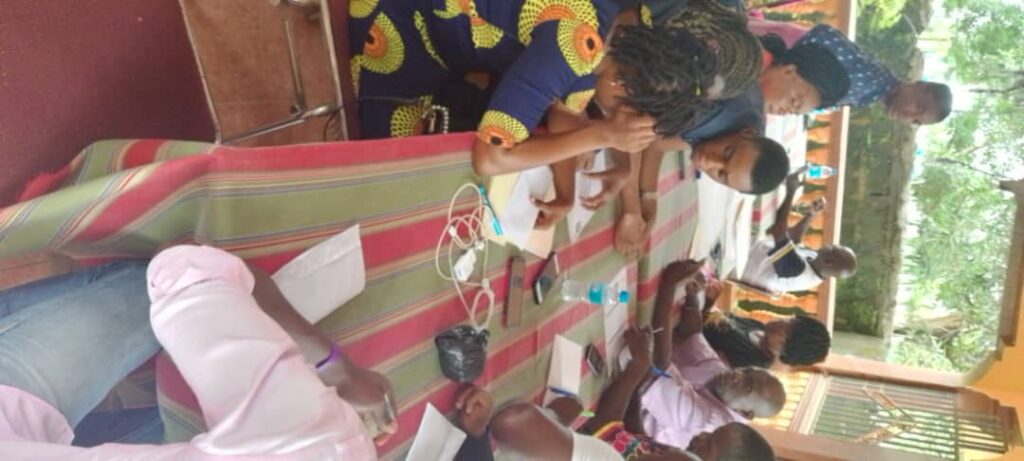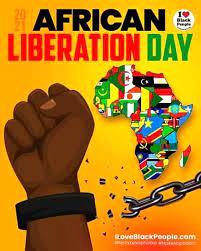The Forum Against Harmful Practices (FAHP) on Friday 26 and 27 August 2022 trained teachers from Pujehun and Western Rural Districts on Female Genital Mutilation (FGM).
The training session took place at the Settus Villa Hotel, Bureh Town, in Western Rural District.
The training of teachers is a collective efforts to support girls raise the voices on the effects of FGM on health which is a human rights violation in the western rural and Pujehun District.
The Executive Director of Tamareneh organization, Madam Salamatu Martha Kamara, said the Forum is working towards ending the practice of FGM.
She told participants that FAHP is not talking about age of consent but it is working relentlessly to end FGM practices in Sierra Leone.
Madam Salamatu Kamara said the training is basically to train teachers about the concept of FGM, health, psychological and its human right effects on the lives of girls and women.
She said it is important to note that FGM is no respect of age, adding that the older the person, the more dangerous the practice is on her life. She therefore underscored the importance of the training for not only for school pupils but is also applicable to all spheres of life.
Madam Kamara disclosed that at the end of the training, participants should be clear on the concept of FGM and the work of FAHP participants should be able to replicate the training in their various schools.
She observed that participants would be inspired to serve as FGM champions in their various schools/communities.
She explained that FGM is all about procedures where the female genitalia are deliberately cut, injured or changed for non-medical reasons.
She added that FGM is also known as female circumcision, and other cultural terms known as suna, megrez, gudnies, halalay, tahur to name but a few.
She told participants that FGM refers to all forms or procedures involving partial or total removal of the external female genitalia or other forms of injuries to the female genitalia organs for cultural or other non-medical reasons.
Madam Kamara also defines FGM “as the smallest but most harmful unit of the bondo society practice”.
The Secretary of the Forum Against Harmful Practices, Madam Aminata Koroma, in her presentation, informed participants that FAHP was formally established on 26 June 2014 as a national coalition to respond to the increasing need for collaborative work among organisations working towards the reduction and ultimate eradication of Harmful Practices
(HPs).
These practices, according to her, include but are not limited to child/forced marriage and Female Genital Mutilation/Cutting (FGM/C) which can contribute to reproductive health problems teenage pregnancy, maternal mortality and violence against Women.
She said FAHP was established to serve as a unifying force to coordinate the activities of organizations working on the issues of HPs.
She continue that FAHP holds the view that Harmful Practices (HPs) labelled because they impacted negatively on the human rights of those concerned and as such, must be replaced over time with progressive and supportive activities that help all Sierra Leonean women to reach their full potential.
Giving the vision of FAHP, Madam Koroma said the Coalition wants to see a Sierra Leone free from all forms of harmful practices including FGM.
She said the mission is to see FAHP’s speak with unified voice against Harmful Traditional Practices (HTPs), where women and girls are able to exercise the enjoyment of their Human Rights and to reach their full potential. “We work towards ensuring that FGM interventions are better coordinated for impact in Sierra Leone,” Madam Koroma said.
Madam Secretary further informed participants that FAHP has a constitution upon which it operates.
She said that in 2015 the Forum registered with the Line Ministry of Social Welfare Gender and Children’s Affairs and now registered with the Ministry of Economic Planning.
As a national coalition, she said, FAHP covers the five regions and all the districts of Sierra Leone.
Speaking on membership, FAHP Secretary said the Coalition is now made up of 23 registered national organizations based in all regions of the country.
She said they also have international members who provide technical and financial support both in country and out of the country.
She said FAHP employs culturally friendly approaches devoid of confrontation, including consultations with all sectors of the Society, Parliamentarians, Initiators (Soweis or Digbas), parents and girls at risk.
She also informed participants that FAHP does a number of trainings on human rights violation, negative effect of FGM on health as well as training of journalists on FGM sensitive reporting.
She disclosed that some of the strategies is dialogue which is one key strategy employed by FAHP to break the silence on FGM, adding that the approach seeks to talk with people to discover their interest on FGM as an entry point to discussion.
She said that during the 16 Days of Activism Against Gender-Based Violence Campaign, the FAHP Sierra Leone chose to draw attention to the need to approve and implement the national strategy for the reduction of FGM/C in Sierra Leone.
Thus, she said the District Dialogues were able to bring focus FGM/C as an issue of gender equality and bring attention to issues and changes that are needed to make an impact on FGM/C abandonment.
The aim of the District Dialogues, according to Madam Koroma, were to secure endorsement and approval of the National Strategy for the reduction of FGM/C in Sierra Leone from with key, influential leaders at the chiefdom and district levels.
She said the coalition has held dialogue with soweis for alternative rite of passage as FAHP recognised the importance of the Bondo Society, as a training ground to maintain our cultural beliefs and a source of power to the initiators as well as a place of social activities for members.
She said that FAHP started discussions with Soweis to map out strategies to promote the Bondo without harm by designing an alternative rite of passage, adding that discussions have been initiated in the Bondo shrines with members from three districts: Kenema, Tonkolili and Port Loko.
Speaking on the plans of FAHP, she said the coalition wants to continue engagement (consultations, dialogue and trainings) on the effect of FGM Celebration of special days as well as raising awareness on FGM from a health and human rights perspective, explore new perspectives looking at FGM as a social norm including community mobilization and sensitization.
The strategy she said is also geared towards engaging Soweis in the initiation shrines on the alternative rite of passage-Bondo without harm.
Presentation of advocacy skills was undertook by Mr Gibril Kargbo.
Participants from the two district expressed thanks and appreciations to FAHP for the training and they pledged to replicate the trainings to their students and communities.













